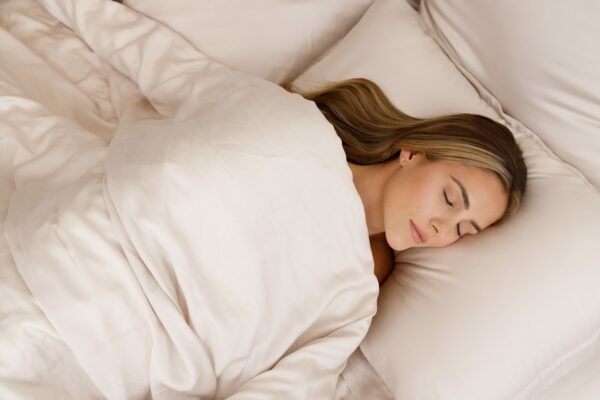
October marks the month of the clocks changing, with them set to move one hour back on Sunday 30th October. With this shift declaring the official start of Winter, the shorter days and darker mornings are upon us. Whilst we won’t see many complain about the extra hour in bed, it does mean the body will need some time to adjust.
A scientific study by Sleep Medicine Reviews concluded that a seemingly small one-hour shift in the sleep cycle can affect sleep for up to one week. It also finds that those who are early risers are negatively impacted by the darker mornings the most.
Although the seasons changing is inevitable, there are some things you can do to keep your mental wellbeing and energy levels uplifted.
Sleep expert and CEO of Ethical Bedding, James Higgins, shares his top tips with us on how to ensure you can get a good night’s rest and get up with ease.
1. Don’t make any adjustments to your sleep schedule
“It might be tempting to go to bed later when the clocks go back, but it’s important to keep your sleep schedule the same all year around. The more consistency your brain has with sleeping times, the better nights sleep you are likely to get.
“Be sure to go to bed at your usual time and it’s important not to push your sleep schedule back or forward for the seasons changing.” says James.
2. Leave 4 hours between eating and sleeping
“A good night’s rest is made up of both internal and external factors. External factors such as noise levels, comfortability and space cannot always be controlled – although internal factors such as your eating habits can.
“When you eat before bed, your body is in the process of digesting the food when it’s time to sleep. Your body is just like a machine and it cannot rest if cogs are still turning.
“Your body ideally needs a 4 hour gap between eating and sleeping to fully digest and be ready to relax. If you eat right before your bedtime, it can be hard to relax your body and even result in broken sleep throughout the night” says James.
3. Don’t keep the bedroom too hot or too cold
“We all know the dreaded feeling of getting up early on a cold winter’s day, and the solace of warm bed sheets will feel all too alluring. If you’re struggling with a cold bedroom, try placing your socks and dressing gown next to your bed so you can easily get dressed without braving the cold air straight away.
“In contrast, sleeping in a very warm environment, or an overly warm duvet tog can interrupt your sleep and create a bad sleeping environment for your body. Excess heat makes the body lethargic as it relaxes the muscles – something you will want to avoid when motivating yourself to get out of bed. If you’re not sure what duvet tog you should be using then it might be time to do a little research depending on your sleep style.” says James.
4. Turn on the lights as soon as you wake up
“As the morning comes around, it will certainly feel like you’re still meant to be asleep during the darker months. An easy hack to mitigate this sensation is turning on your bedside lamp, or main light as soon as you wake up. This forces the brain to acknowledge that sleeping time has ended and will begin the process of waking up.” says James.
5. Drink a full glass of water when you wake up
“Drinking water as soon as you wake up will help stimulate the body and help you stay awake in the early hours of the morning. You could fill up a glass the night before, and have it ready for yourself to drink when you wake-up, or alternatively, you can challenge yourself and leave an empty glass next to your bed that you would need to get up and fill the next day.
“Drinking a full glass of water when you wake up not only is a great lubricant for the brain and hydrates the body, but it also starts the digestive system which will bring the body natural energy to get started.” says James.
6. Get active
“Finally, it might seem like a cliche, but that’s because it’s true – exercising in the morning will most certainly kick start your body. The endorphins will not only provide a positive impact on your brain and natural energy, exercise is proven to help you sleep better at night, thus creating a positive circle to your daily winter routine. It doesn’t need to be strenuous, but it’s important to get the blood flowing.” says James.
